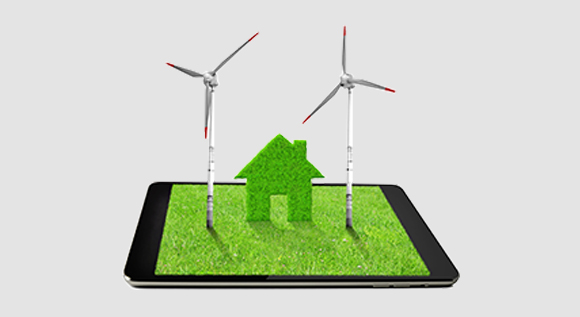Security in the smart grid
A digital energy transition: from 2017, smart metering systems will gradually provide a secure link for consumers and producers to the smart energy grid. The federal cabinet decided this today by adopting the draft Act on Digitisation of the Energy Transition.
 © Vencav/Fotolia.com
© Vencav/Fotolia.com
First the big players, then the smaller fish: from 2017, smart metering systems will gradually provide a secure link for consumers and producers to the smart energy grid. They are to be installed for large consumers and producers first, and then from 2020 in private households with high levels of electricity consumption. This is the intention of the draft Act on Digitisation of the Energy Transition, which the federal cabinet adopted today. The act also puts in place the technical preconditions and data protection rules for the electricity sector to be digitised: a key element of the future electricity market.
Minister Gabriel said: "The Act on the Digitisation of the Energy Transition is creating the necessary innovative framework for the electricity sector to become one of the first fully digitised sectors in our economy. This is important, because we need digitisation if we are to intelligently combine power generation, buildings and transport, and to make them more efficient."
Smart metering systems are to make it possible to equip the energy system for the needs of the energy transition. They integrate power from renewable energy into the electricity market and help to reconcile supply and demand.
Know what you’re consuming and save your money
The consumers benefit: Firstly, smart meters make it possible to see how much electricity is being used in the home, and thus help people to be more aware of how they are using energy. Secondly, consumers can conclude electricity supply contracts which fit better with their individual electricity consumption patterns and are cheaper. Variable tariffs are also possible. These deliver economic incentives to consume electricity when it is cheap. Also, smart meters end the need to read meters at the point of consumption. So smart meters don’t just save money, they save time too.
Benefits must outweigh costs
The plan is to start with large-scale users with an annual electricity consumption exceeding 10,000 kilowatt-hours (kWh), and generators with an installed capacity of more than 7 kilowatts (kW). From 2020, consumers using more than 6,000 kWh/year will also have to install smart meters. Private households generally use much less - 3,500 kWh a year on average.
Also, strict upper price limits will apply to each installation of a smart meter. This will ensure that consumers are protected from excessive costs as the new metering systems are rolled out. The idea is that they should benefit from the smart meters: "The roll-out is based on economic principles," stresses State Secretary Rainer Baake. "Where it pays off for the consumer, it is compulsory. Where it doesn’t pay off, we are not insisting on it."
As with the traditional electricity meters, the costs of installing and using the equipment are split between the consumer and the provider. The level of the upper price limits for the consumers will depend on the anticipated potential reductions in electricity costs offered by the new systems. The Act will not permit costs to exceed the upper price limits. The annual ceiling will cover both operating costs and the installation of the smart meters.
Data will be strictly protected
Since the use of smart meters will necessitate high data transfer volumes, the draft Act contains strict rules governing the protection and security of consumer data. This is why a very large package (several hundred pages) of technical guidelines and protection profiles developed by the Federal Office for Information Security (BSI) has been included in the draft Act. It sets very high standards for data protection and security. All the systems used in Germany will have to meet these requirements. The aim is to keep hackers out of the system.
Good to know: normal private households will not be obliged to transfer the data. And where data has to be transferred, it will be encrypted. The Act stipulates precisely who may access what data and in what circumstances.

